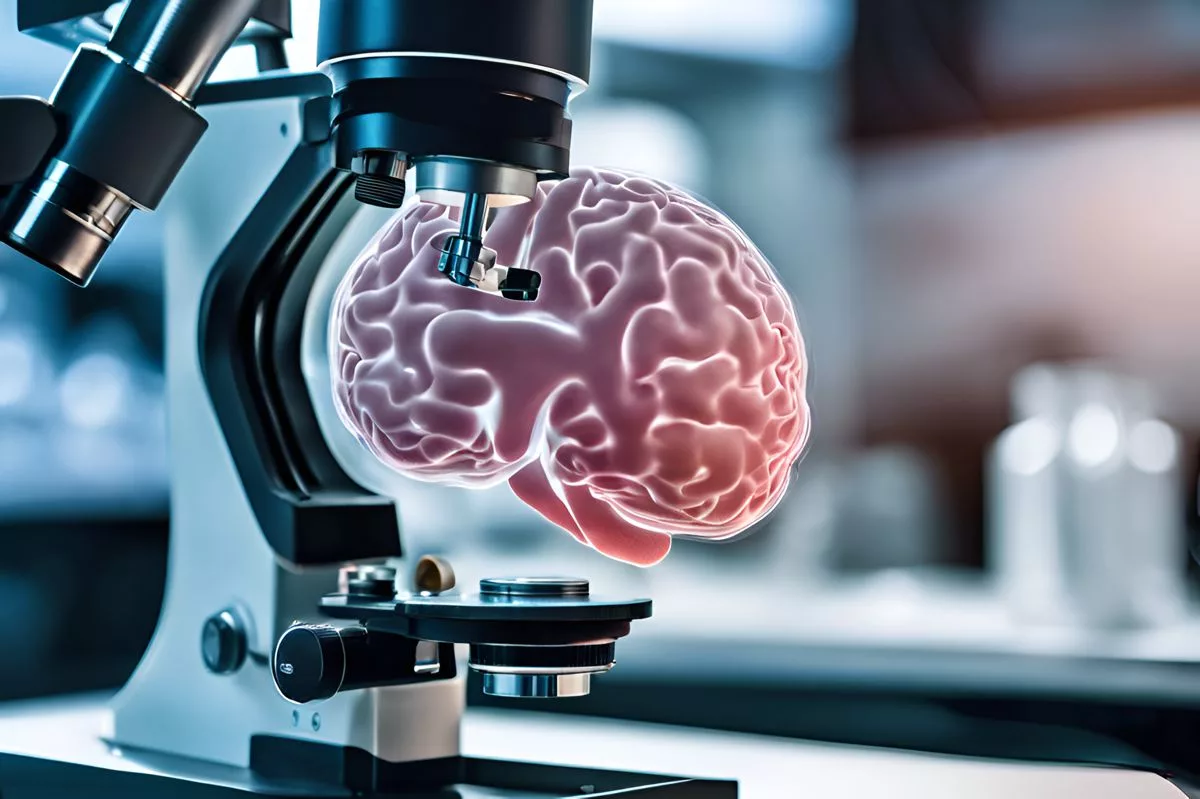Prof. Anthony Figaji of the University of Cape Town has won the prestigious Wellcome Discovery Award for his groundbreaking work in promoting clinically relevant neuroscience research. The award is a grant to support pioneering research ideas across a wide array of disciplines. Prof. Figaji’s research project aims to develop a comprehensive understanding of the disease mechanisms and the brain’s reaction to infections, with a strong emphasis on clinical application. This achievement serves as a testament to the potential for groundbreaking research and global contributions that can emerge from the African continent.
What is the Wellcome Discovery Award and who won it this year?
The Wellcome Discovery Award is a grant to support pioneering research ideas across various fields. Prof. Anthony Figaji of the University of Cape Town won the award this year for his groundbreaking work in promoting clinically relevant neuroscience research. The initiative aims to develop a comprehensive understanding of the disease mechanisms and the brain’s reaction to infections with a strong emphasis on clinical application.
The Significance and History of the Award
In an impressive victory for academic innovation, Prof. Anthony Figaji of the University of Cape Town (UCT) has been honored with the esteemed Wellcome Discovery Award. This award serves as a grant to support pioneering research ideas across a wide array of disciplines. Initiating its journey in 1936, the Wellcome Trust Foundation introduced this award with the mission of aiding scientific pursuits designed to address substantial global health issues.
As a world-renowned charity, the Wellcome Trust Foundation has a deep-rooted tradition of endorsing research with the potential to induce considerable shifts in comprehension and understanding, which ultimately contributes to the enhancement of human life, health, and wellbeing. Prof. Figaji, a leading figure in the Division of Neurosurgery at the Neurosciences Institute, also holds the prestigious National Research Foundation SARChI Chair of Clinical Neurosciences. He is widely recognized for his groundbreaking work in promoting clinically relevant neuroscience research.
Prof. Figaji’s Research: An Exploration into the Brain’s Response to Infection
The research project led by Prof. Figaji, sponsored by the Wellcome Trust Foundation, has a crucial goal – to delve deeper into our understanding of the brain and how it responds to infections. The initiative is fuelled by the global devastation caused by tuberculosis (TB), notably its deadliest form, TB meningitis. Prof. Figaji underscored the urgent necessity for better therapeutic treatments, given the high mortality rates of TB meningitis victims, which is further exacerbated by HIV co-infection, and the frequent occurrence of lasting disabilities among survivors.
The research approach is innovative and cross-disciplinary, with a strong emphasis on clinical application. The team’s objective is to develop an all-encompassing understanding of the disease mechanisms and the brain’s reaction. Prof. Figaji stressed that the distinguishing feature of this research is its cross-disciplinary and translational focus, supported by a team of proficient and dedicated individuals.
Over the years, the team has strived to establish an exceptional clinical infrastructure for treating critically ill patients. This setup permits the direct extraction of samples from the central nervous system, enabling advanced clinical care and innovative bench research. Prof. Figaji explained that this is an example of successful collaboration between clinicians and laboratory scientists.
Dissecting the Disease: A Unique Approach to Understanding the Brain
The complexity of understanding diseases in the brain is well recognized, and the existing methodologies often fall short. Current research methods often rely on assumptions based on blood samples or cerebrospinal fluid from lumbar punctures, which may only provide a partial view of the brain’s intricate processes. To counter this, Prof. Figaji’s research team has devised methods allowing direct examination of the brain at various points in time, resulting in a more comprehensive and accurate understanding.
The primary focus of this trailblazing research project is to understand before acting. The team aims to comprehend the disease mechanisms that lead to damage in brain tissue by studying metabolism and inflammation in the brain. Prof. Figaji is hopeful that this approach will uncover new insights into the body’s response to disease, paving the way for host-directed therapy.
The Impact and Recognition of the Award
The research team expressed profound gratitude for the Wellcome Discovery Award, which is granted through a rigorous competition among universities worldwide, and is typically conferred to institutions in high-income countries. The receipt of this award thus underscores the fact that cutting-edge interdisciplinary neuroscience research can indeed be conducted in Africa.
The team is hopeful that this accolade can motivate professionals in the region, reversing the ‘brain drain’ trend where students from high-income countries are encouraged to perceive Africa as an environment for opportunities. Prof. Figaji noted that younger generations often feel compelled to relocate to universities in high-income countries to further their careers. He contends that they can build world-class careers right at home in Africa, where the potential for making a significant impact is arguably greater.
This achievement serves as a testament to the potential for groundbreaking research and global contributions that can emerge from the African continent. It highlights the importance of interdisciplinary collaboration, the strength of perseverance, and the transformative impact of unlocking new levels of understanding in the field of neuroscience.
What is the focus of Prof. Anthony Figaji’s research project?
Prof. Anthony Figaji’s research project aims to develop a comprehensive understanding of the disease mechanisms and the brain’s reaction to infections, with a strong emphasis on clinical application. The primary focus is to understand the disease mechanisms that lead to damage in brain tissue by studying metabolism and inflammation in the brain.
What is the significance and history of the Wellcome Discovery Award?
The Wellcome Discovery Award is a grant to support pioneering research ideas across various fields. The award serves as a testament to the potential for groundbreaking research and global contributions that can emerge from the African continent. The Wellcome Trust Foundation introduced this award in 1936 with the mission of aiding scientific pursuits designed to address substantial global health issues.
What is the approach of Prof. Figaji’s research to understanding diseases in the brain?
The existing methodologies for understanding diseases in the brain often fall short. Current research methods often rely on assumptions based on blood samples or cerebrospinal fluid from lumbar punctures, which may only provide a partial view of the brain’s intricate processes. To counter this, Prof. Figaji’s research team has devised methods allowing direct examination of the brain at various points in time, resulting in a more comprehensive and accurate understanding.
What is the impact and recognition of the Wellcome Discovery Award in Africa?
The receipt of this award underscores the fact that cutting-edge interdisciplinary neuroscience research can indeed be conducted in Africa. The team is hopeful that this accolade can motivate professionals in the region, reversing the ‘brain drain’ trend where students from high-income countries are encouraged to perceive Africa as an environment for opportunities.
What is the aim of Prof. Figaji’s research project?
The aim of Prof. Figaji’s research project is to develop a comprehensive understanding of the disease mechanisms and the brain’s reaction to infections, with a strong emphasis on clinical application. The team aims to comprehend the disease mechanisms that lead to damage in brain tissue by studying metabolism and inflammation in the brain.
Who is Prof. Anthony Figaji and what is his role in this research project?
Prof. Anthony Figaji is a leading figure in the Division of Neurosurgery at the Neurosciences Institute and holds the prestigious National Research Foundation SARChI Chair of Clinical Neurosciences. He is widely recognized for his groundbreaking work in promoting clinically relevant neuroscience research. He is the leader of the research project sponsored by the Wellcome Trust Foundation.








